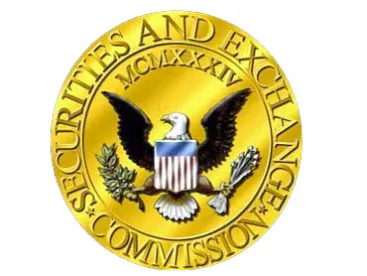The Securities and Exchange Commission (SEC) has responded to some of the many critics who have voiced concerns about the procedural fairness and the antiquated nature of its administrative hearing process. On September 24, 2015, the SEC issued two proposed amendments to the rules that govern administrative proceedings.
“The proposed amendments seek to modernize our rules of practice for administrative proceedings, including provisions for additional time and prescribed discovery for the parties,” said SEC Chair Mary Jo White.
The proposed amendments will provide respondents with more tools in their efforts to defend themselves in administrative proceedings commenced by the SEC, closing some of the gap between the tools available to them in civil court proceedings and those available in administrative hearings, and will modernize the SEC administrative hearing process. The proposals would also provide for an electronic filing system not dissimilar to that utilized in federal court. While the new proposals may be viewed as a step toward addressing some of the attacks on the procedural fairness of SEC administrative proceedings, they do not deal with the constitutional challenges to the appointment of administrative law judges (ALJs) or to the equal-protection arguments that have been raised in recent cases.
The proposals include four significant changes to the SEC’s Rules of Practice that would:
-
Adjust the timing of events in administrative proceedings, including extending the time before a hearing occurs in certain cases;
-
Expand the discovery available to parties by, among other things, permitting some depositions of witnesses as part of discovery;
-
Provide additional guidelines relating to the appeal process; and
-
Require electronic filing of submissions, and establish procedures allowing parties to protect the confidentiality of certain sensitive personal information in those filings.
Discovery
The proposed rules would provide enhanced discovery. Depositions would be allowed even if the proposed deponent would be available to testify at a hearing. The SEC and respondents would each be allowed three depositions in single-respondent cases and five depositions in multiple-respondent cases. Parties also could request that the hearing officer issue a subpoena for testimony and for documents in connection with the deposition. However, is not expected that the new discovery rules will be able to be utilized to depose SEC investigative personnel or to obtain SEC files that previously were not subject to discovery.Deposition procedures would be akin to those imposed under the Federal Rules of Civil Procedure. Depositions on written questions would be allowed either by stipulation or upon demonstration of good cause. Moreover, issues relating to discovery such as expert-witness disclosures and depositions would be addressed at prehearing conferences. The proposals also include procedures related to the proposed deposition practice, such as addressing the location, recording, forms of objections, and duties of the deposition officer.
The Timing Of Hearings
The SEC’s procedural rules have been criticized for not allowing respondents sufficient time to prepare and present their defenses in administrative proceedings. The proposed rules would modify the timeframe in several respects:
-
The proposed revisions would potentially extend the date that the hearing must begin. Under the proposed amendments, the hearing must be scheduled to begin approximately four months after service of the order instituting proceedings - - but not later than eight months after the service of the order commencing proceedings. This modification would effectively double the maximum amount of time between commencement of the proceeding and the hearing, from four to eight months. This change is intended to provide additional flexibility during the prehearing phase of a proceeding and afford parties sufficient time to conduct deposition discovery pursuant to the proposed new rules, while retaining an outer time limit to ensure the timely and efficient resolution of the proceeding.
-
The deadline for the ALJ in a proceeding to file his or her initial decision would run from the completion of that post-hearing briefing or briefing of dispositive motions, rather than from the date of service of the SEC’s order instituting the proceedings. This modification would divorce the deadline for the completion of an initial decision from other stages of the proceeding. Under the proposed amendment, the deadlines for initial decisions that would established in the SEC’s order instituting proceedings, and would be 30, 75, or 120 days from the completion of post-hearing or dispositive briefing (depending on the nature and complexity of the case). The proposed length of time afforded for the preparation of an initial decision in each type of proceeding would be the same as the amount of time hearing officers are afforded under current rules, if a proceeding actually progresses according to the timeline set out in the current rule.
-
Finally, the amended rules would create a procedure for extending the timing for issuance of an initial decision by up to 30 days.
Appeals of Administrative Decisions
The proposed rules would revise the processes for appealing an ALJ’s initial decision to the SEC. A notice pleading approach would be adopted, such that petitioner initiating the appeal would no longer need to set forth all of the specific findings and conclusions to which he takes exception. Instead, the petitioner would only need to provide “a summary statement of the issues presented for review,” and the petition would be limited to three pages. It is contemplated that the petitioner would address the issues in greater detail during the briefing process.The SEC would ordinarily be required to issue its decision within eight months from completion of the briefing, unless the SEC determines that the complexity of the issues warrants additional time, in which case the decision should issue within ten months after the completion of briefing. However, if the SEC determines that it cannot meet the eight or ten month deadline, it may extend that period by one or more orders as it deems appropriate. Certain decisions in administrative cases have been slow to issue. This provision may have the effect of making the issuance of decisions more orderly.
Electronic Filing System
The SEC proposes to amend its Rules of Practice to automate and modernize aspects of the filing process in administrative proceedings to facilitate the flow of information to the public. This would also have the effect of streamlining the filing process for the parties to the proceeding. The proposals indicate that the SEC is developing a comprehensive Internet-based electronic system that would allow persons in administrative proceedings to file and serve documents electronically and would facilitate the prompt distribution of public information regarding administrative proceedings. Electronic submissions would be mandatory. There are three main components to the proposed approach.
-
First, persons involved in administrative proceedings would be required to file such documents electronically through a secure system on the SEC’s website at www.sec.gov that is designed to receive uploads of documents and attachments. Filing by facsimile and in paper format would no longer be permitted absent the filing of a certification that the person reasonably cannot comply with the electronic filing requirement. However, during the first 90 days after the proposed amendments become final, the SEC intends to administer a phase-in period that would require all filings to be made both electronically and in paper format.
-
Second, parties that are required to serve documents in connection with an administrative proceeding would be required to serve each other electronically in the form and manner that is prescribed in the guidance posted on the SEC’s website.
-
Third, filers would be required to exclude or redact sensitive personal information from electronic filings and submissions. Sensitive personal information would be defined as a Social Security number, taxpayer identification number, financial account number, credit card or debit card number, passport number, driver's license number, state-issued identification number, home address (other than city and state), telephone number, date of birth (other than year), names and initials of minor children, as well as any sensitive health information identifiable by individual, such as an individual's medical records. The definition of sensitive personal information would not include a personal e-mail address, though the SEC is seeking comments with respect to whether personal e-mail addresses generally and home addresses of parties and persons filing documents with the SEC could have an adverse effect on persons or parties, and whether those terms should be included in the definition of sensitive personal information that must be excluded or redacted.
If the person making a filing believes that sensitive personal information is necessary to the proceeding, the person could file a motion for a protective order to limit disclosure of the sensitive personal information. If review of the documents is necessary to a ruling on the motion, the person would be required to file an unredacted version of the submission to be used by the hearing officer and the SEC for purposes of the proceeding, and a redacted version to be used for distribution to the public. A redacted version would not need to be filed if the submission would be redacted in its entirety. This reflects current practice when parties file motions for protective orders pursuant to the Rules of Practice.
As a corollary to incorporating electronic filings into the Rules of Practice, self- regulatory organizations and the Public Company Accounting Oversight Board (PCAOB) would be required to file electronically with the SEC a copy of a record that is the subject of an appeal.
The SEC will seek public comment on the proposed rule amendments for 60 days following each proposal’s publication in the Federal Register. The SEC’s proposed rules may be found at http://www.sec.gov/rules/proposed/2015/34-75976.pdf and http://www.sec.gov/rules/proposed/2015/34-75977.pdf



 />i
/>i

